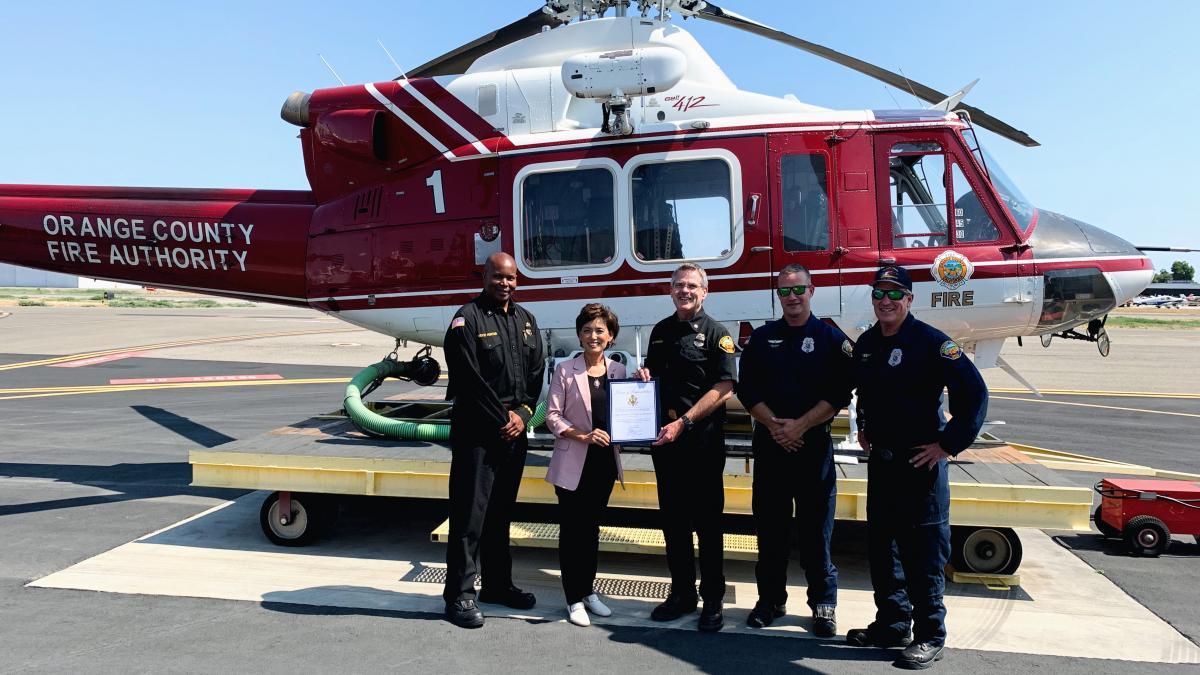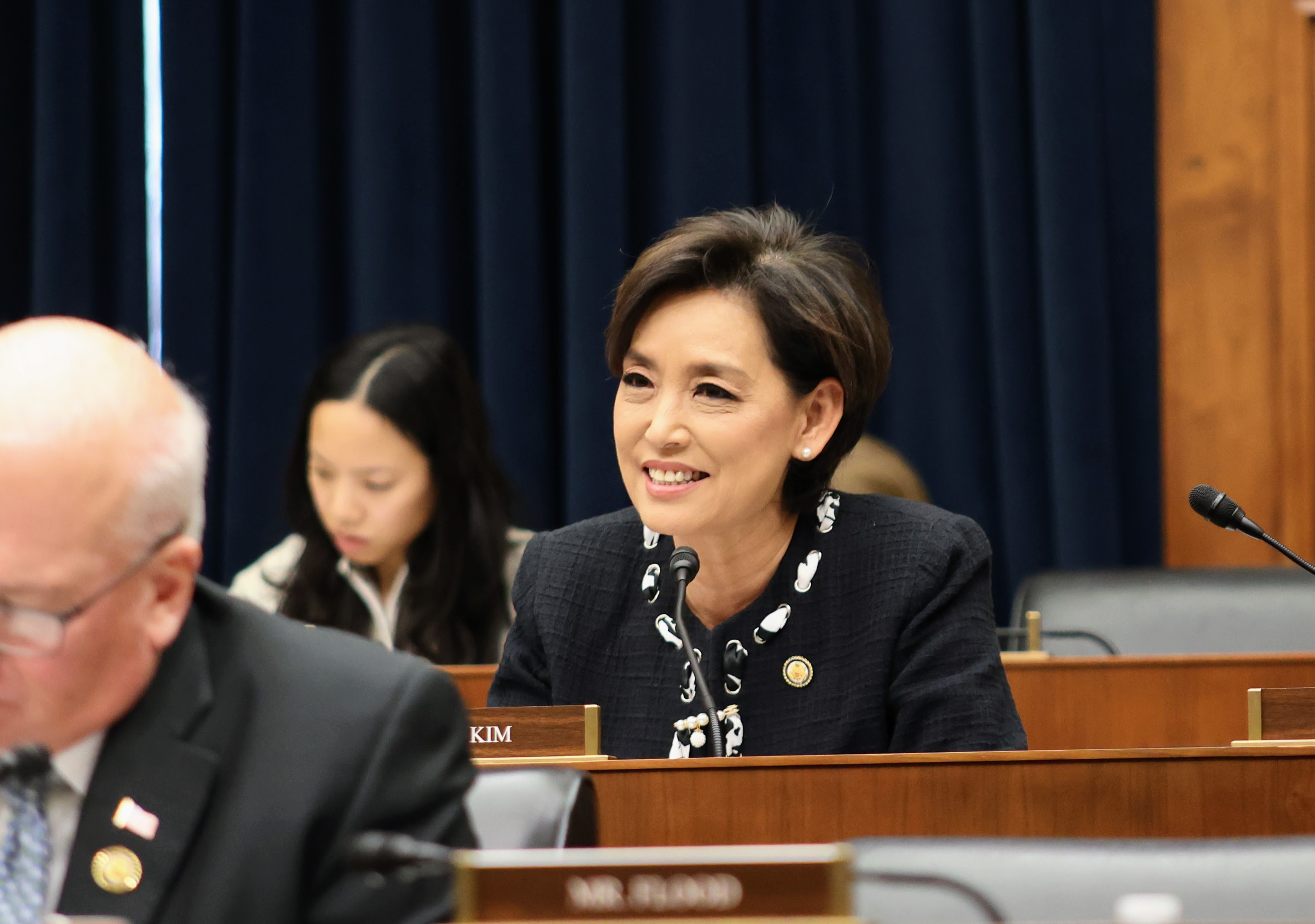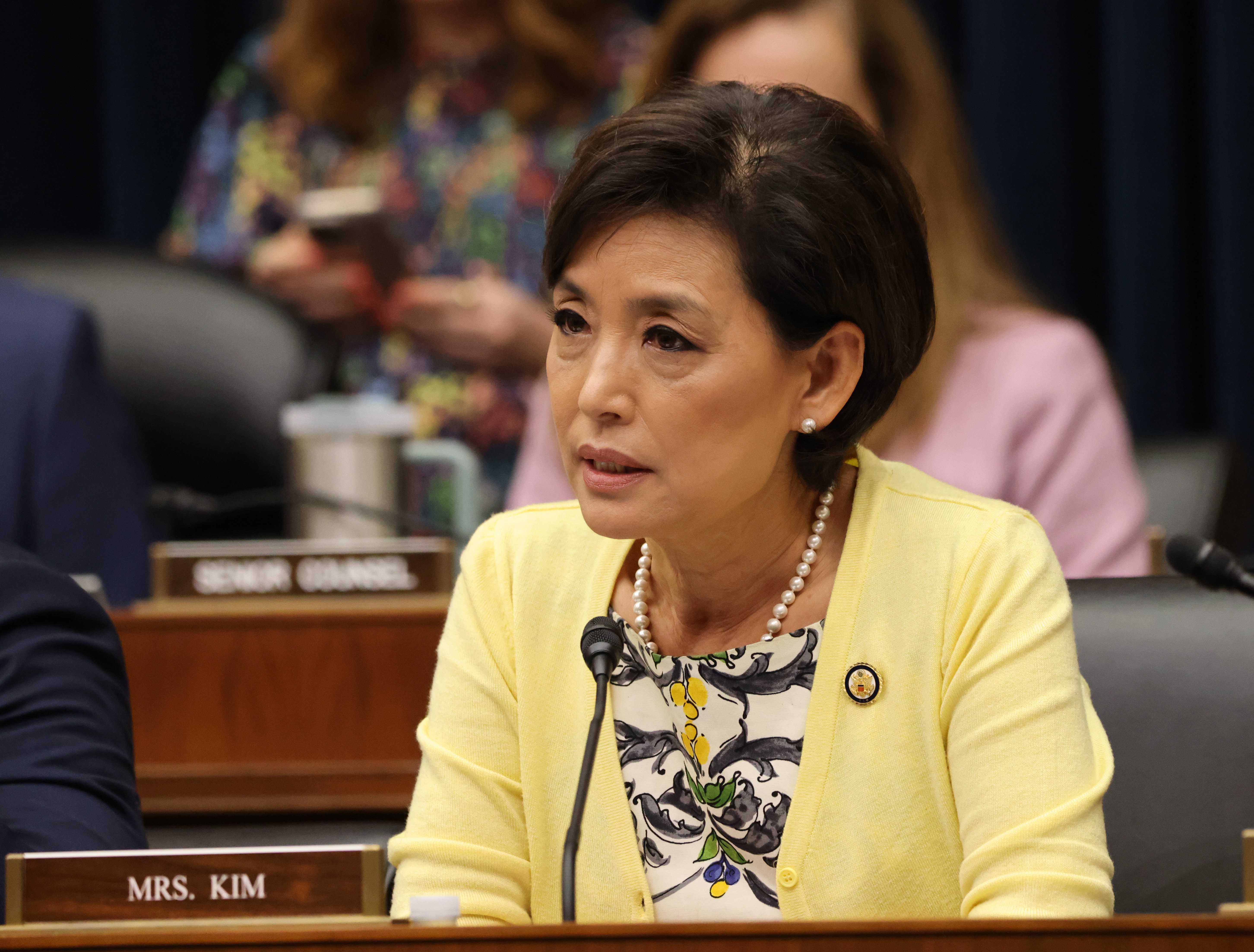Washington, DC—Yesterday, the House Science, Space, and Technology Committee passed out of Committee the Fire Weather Development Act (H.R. 4866), a bipartisan bill introduced by U.S. Representatives Young Kim (CA-40), Mike Garcia (CA-27), and Yadira Caraveo (CO-08) to expand fire weather and environment monitoring and forecasting capabilities.
H.R. 4866 includes two bipartisan bills by Rep. Kim to improve wildfire detection and communications efforts, including:
- The bipartisan Fire Information and Reaction Enhancement (FIRE) Act (H.R. 550), introduced earlier this year and in the 117th Congress by Reps. Kim, Garcia, Julia Brownley (CA-26), and Judy Chu (CA-28) to allow for the National Oceanic and Atmospheric Administration (NOAA) to develop and expand wildfire detection capabilities; and,
- The NIST Wildland Fire Communications and Information Dissemination Act (H.R. 369), introduced by Reps. Kim, Melanie Stansbury (NM-01), and Joe Neguse (CO-02) this year and in the 117th Congress to enhance communications and information sharing efforts between first responders, fire management response officials, and community members during wildfires.
“With peak wildfire season approaching, many of my constituents, especially in canyon communities, are weary of the increased threat of wildfires. Early detection and forecasting efforts can help us get ahead, so we can prevent wildfires and save lives,” said Rep. Young Kim. “The Fire Weather Development Act will improve information sharing to better understand and predict fire weather and environment conditions. I am proud to help lead this commonsense bill and will continue fighting to improve wildfire readiness and protect CA-40 communities.”
“This bill will strengthen our nation’s fire weather capabilities across the board. The human-to-wildland interface is growing, especially in North LA suburbs such as the ones in CA-27. It’s critical that we invest in revolutionizing the way we forecast fire weather, coordinate government agencies, use modern technologies, and disseminate information to firefighters and civilians. This bipartisan bill will do exactly that, complementing the groundwork laid out in my Fire Information and Reaction Enhancement Act. It will establish a modern program to improve emergency communications; streamline data collection for local communities; improve research and monitoring tools, including the use of unmanned drone technology; and so much more. In short, this is a critical force multiplier for our firefighters. Last year, there were almost 69,000 wildfires that burned nearly 7.6 million acres across the country. This bill is a common-sense, necessary step toward better protecting American lives and property, and I’m proud to introduce it alongside my colleagues from both sides of the aisle,” said Rep. Garcia.
“Colorado has experienced some of the largest wildfires in state history over just the past five years. These devastating fires are no longer seasonal, but happening year-round – leaving communities reeling long after the fire is put out. I’m glad to work with Reps. Garcia and Kim on the bipartisan Fire Weather Development Act to improve fire weather forecasting, detection, and warnings. By supporting and expanding on NOAA’s important work, including at the facility in Boulder, we can take more preventative measures against wildfires and help save lives,” said Rep. Caraveo.
The Fire Weather Development Act directs NOAA to create and improve fire weather and environment forecasting and detection through federal, state, and local collaboration by:
- Allowing NOAA to enter private contracts to gain airborne and space-based data to enhance fire weather and fire environment monitoring and prediction;
- Giving NOAA the ability to assess drone use to improve data collection and to conduct drone pilot programs;
- Creating an Interagency Coordinating Committee on Wildfires to accurately detect and forecast wildfires to assist state and local emergency officials;
- Setting up a National Advisory Committee on Wildfires to offer recommendations on wildfire forecasting communication and opportunities to streamline Federal forecasting and detection data to local communities;
- Developing a fire weather testbed to evaluate technology and fire weather tools and services; and,
- Directing NOAA to submit an assessment of National Weather Service workforce challenges for Incident Meteorologists and a plan of action to address these challenges.
Read the bill here.




